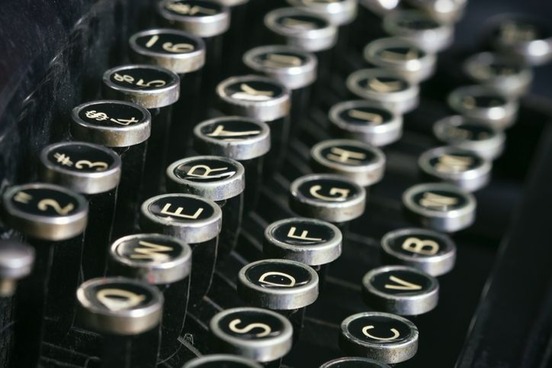
Ab ovo
: from the beginning
Ab ovo is Latin for "from the egg." The Roman poet Horace used it in the phrase ab ovo usque ad mala, which translates as "from the egg to the apples" and alludes to the Roman tradition of starting a meal with eggs and finishing it with apples. Horace was using ab ovo literally, but it's been in figurative use for at least 500 years. Both literal and figurative uses are still found:
Dinosaurs had come a long way from the macho "terrible lizards" that erupted ab ovo, ready to begin their rampages. One of Horner's discoveries was Maiasaura (the first use of the feminine "a" ending versus the masculine "us"), meaning "good mother lizard."
— Jack Hitt, Harper's, October 2001"Peter and the Starcatcher"—a show that exalts that ephemeral space where actor and audience embrace, time out of time—promises to stand for many years as a worthy legacy to Rees: the superb actor, brilliant director, and absolutely marvelous man who was there ab ovo.
— Judith Newmark, The St. Louis Post-Dispatch, 10 Dec. 2015

Ack emma
: before noon
Insert a comma and add a capital letter and you've got an expression of mild alarm or dismay addressed to someone named Emma. But there is neither comma nor capital E in ack emma. Instead there is merely a way to say that it's morning—i.e., that you mean a.m.
Yes. I phoned Sally from the inn, and everything is arranged. She will drive over in my car and be waiting in the garden outside the collection room at one ack emma.
— P. G. Wodehouse, Uncle Dynamite, 1948
Ack emma is British but seldom heard anywhere these days. It comes from military use: ack and emma were formerly the British words of choice to represent the letters A and M respectively in various communications systems. In the mid-20th century they were replaced with Able and Alfa for A and Mike for M.
Ack emma has a counterpart: pip emma means "after noon," i.e., p.m.

Al desko
: at one's desk
Do you eat at your desk? Then you're eating al desko. This late 20th century informal and mostly British adverb is a play on the much older alfresco, which means "in the open air." That word comes from Italian, in which language it means "in the open."
Eating “al desko” is an acceptable practice, [Patricia Rossi, business etiquette expert] says, but it should be done as sparingly as possible and with the feelings of neighbors top-of-mind.
— Matthew Diebel, USA Today, 6 Apr. 2017

Allenarly
: solely, only
But we are to hold in remembrance that Scotland, though it be our native land, and the land of our fathers, is not like Goshen, in Egypt, on whilk the sun of the heavens and of the gospel shineth allenarly, and leaveth the rest of the world in utter darkness.
— Walter Scott, The Heart of MidLothian, 1818
Allenarly has been with us English speakers since Middle English, but really only a few of us, and even then they're mostly Scottish and mostly long dead. The word traces back to all (approximately the same all we know and love today) and onely or only, meaning "solely" or "only." It has a lovely ring. We see no reason it shouldn't see a resurgence in use in the 21st century.

Allwhither
: in all directions
Trees grew out of mud, arched upon lean and high roots, and many muddy water-ways ran allwhither into darkness under the trees.
— Rudyard Kipling, Puck of Pook's Hill, 1906
Oh, the whithers. In addition to the adverb whither itself, which means "to what place" or "to what situation, position, degree, or end," there are five even more charming whithers, two of which begin with A.
Allwhither means "in all directions," as in "The machine is spewing bubbles allwhither." Anywhither means "in any direction whatever," as in "A broken machine can't spew bubbles anywhither." Elsewhither means "to some or any other place in a different direction or toward a different objective," as in "If only it would spew the bubbles elsewhither." Nowhither means "to or toward no place," as in "If the machine breaks it will spew nowhither." And somewhither means "to some place; somewhere," as in "We'll retreat somewhither the machines cannot find us."

Archly
1 : with playful slyness or roguishness 2 : extremely
Harrison Ford, for once, is better than expected. And that opening number—"Anything Goes" sung in Chinese in a Shanghai bar archly named Obi-wan—is a kick.
— Stephen Schaefer, US, 2 July 1984
This adverb comes from the adjective arch, which has the ho-hum meaning of "chief, principal," as in "an arch opponent," but also two more droll meanings: "mischievous, saucy," as in "an arch look"; and "marked by a deliberate and often forced playfulness, irony, or impudence," as in "arch comments." These two uses and the "with playful slyness or roguishness" use of archly have their origins in the use of the prefix arch- as an intensifying prefix. These days, we see that use of the prefix in such terms as archconservative, but it used to attach to some more colorful terms, like rogue. It's likely that some of the meaning of rogue and similar arch-friendly terms were eventually extended to the prefix itself.
All of these arches are unrelated to the architectural arch, which comes from Latin arcus, meaning "bow, arch, arc."

Au pied de la lettre
: literally
In French, the phrase au pied de la lettre means "to the foot of the letter," but English speakers have been calling upon it to mean "literally" for about 300 years.
As in the eighteenth century, [upper class]-conversation is larded with vehement and extreme adjectives (ghastly, frightful, disastrous, nauseating), but they are no more intended to be taken au pied de la letter than the unprintable epithets so freely used by soldiers.
— Alan S. C. Ross and Nancy Mitford, Noblesse Oblige, 1956
Applying a somewhat unwieldy French phrase where a simple English adverb will do is arguably abominably pretentious, but given the broad complaints of overuse about the word literally there might be some societal benefit to tossing au pied de la lettre into the occasional conversation. Be sure to put it to some kind of hyperbolic use if you want to do the most good. But beware: you might make your reader's head explode au pied de la lettre.





